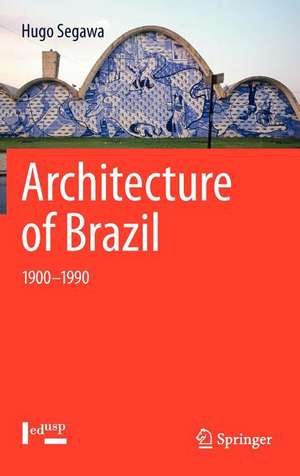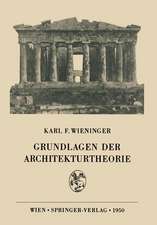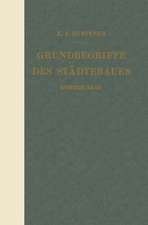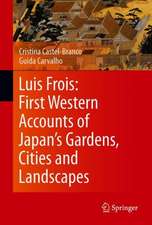Architecture of Brazil: 1900-1990
Autor Hugo Segawaen Limba Engleză Hardback – 5 dec 2012
| Toate formatele și edițiile | Preț | Express |
|---|---|---|
| Paperback (1) | 775.12 lei 6-8 săpt. | |
| Springer – 28 ian 2015 | 775.12 lei 6-8 săpt. | |
| Hardback (1) | 645.96 lei 6-8 săpt. | |
| Springer – 5 dec 2012 | 645.96 lei 6-8 săpt. |
Preț: 645.96 lei
Preț vechi: 759.96 lei
-15% Nou
Puncte Express: 969
Preț estimativ în valută:
123.60€ • 134.68$ • 104.15£
123.60€ • 134.68$ • 104.15£
Carte tipărită la comandă
Livrare economică 23 aprilie-07 mai
Preluare comenzi: 021 569.72.76
Specificații
ISBN-13: 9781461454304
ISBN-10: 1461454301
Pagini: 280
Ilustrații: XIV, 266 p.
Dimensiuni: 155 x 235 x 19 mm
Greutate: 0.57 kg
Ediția:2013
Editura: Springer
Colecția Springer
Locul publicării:New York, NY, United States
ISBN-10: 1461454301
Pagini: 280
Ilustrații: XIV, 266 p.
Dimensiuni: 155 x 235 x 19 mm
Greutate: 0.57 kg
Ediția:2013
Editura: Springer
Colecția Springer
Locul publicării:New York, NY, United States
Public țintă
Professional/practitionerCuprins
An Explanation.- Brazil under Urbanization 1862-1945.- From Colonial to Neocolonial Style: The Search for Some Modernity 1880- 1926.- Programmatic Modernism 1917-1932.- Pragmatic Modernity 1922-1943.- Current Modernity 1929-1945.- The Affirmation of a School 1943-1960.- The Affirmation of a Hegemony 1945-1970.- Episodes of a Great and Modern Brazil 1950-1980.- Disarticulation and Rearticulation? 1980-1990.
Textul de pe ultima copertă
Architecture of Brazil: 1900-1990 examines the processes that underpin modern Brazilian architecture under various influences and characterizes different understandings of modernity, evident in the chapter topics of this book. Accordingly, the author does not give overall preference to particular architects nor works, with the exception of a few specific works and architects, including Warchavchik, Niemeyer, Lucio Costa, and Vilanova Artigas.
In summary, this book:
Meticulously examines the controversies, achievements, and failures in constructing spaces, buildings, and cities in a dynamic country
Gives a broad view of Brazilian architecture in the twentieth century
Proposes a reinterpretation of the varied approaches of the modern movement up to the Second World War
Analyzes ideological impacts of important Brazilian architects including Oscar Niemeyer, Lucio Costa and Vilanova Artigas
Discusses work of expatriate architects in Brazil
Features over 140 illustrations
In Architecture of Brazil: 1900-1990, Segawa brings to the reader an understanding of this important period of architectural history based on his emphasis on processes, allowing the reader to see in-context the leading figures and achievements.
In summary, this book:
Meticulously examines the controversies, achievements, and failures in constructing spaces, buildings, and cities in a dynamic country
Gives a broad view of Brazilian architecture in the twentieth century
Proposes a reinterpretation of the varied approaches of the modern movement up to the Second World War
Analyzes ideological impacts of important Brazilian architects including Oscar Niemeyer, Lucio Costa and Vilanova Artigas
Discusses work of expatriate architects in Brazil
Features over 140 illustrations
In Architecture of Brazil: 1900-1990, Segawa brings to the reader an understanding of this important period of architectural history based on his emphasis on processes, allowing the reader to see in-context the leading figures and achievements.
Caracteristici
Meticulously examines the controversies, achievements, and failures in constructing spaces, buildings, and cities in a dynamic country Gives a broad view of Brazilian architecture in the 20th century Proposes a reinterpretation of the varied approaches of the modern movement up to the Second World War Analyzes ideological impacts of important Brazilian architects including Oscar Niemeyer, Lúcio Costa and Vilanova Artigas Discusses work of expatriate architects in Brazil Features over 140 illustrations




